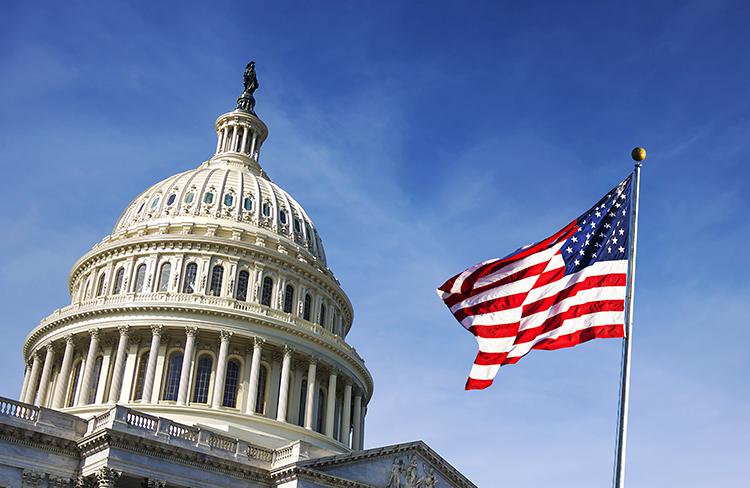
Chicago Regional Council of Carpenters
Information on provisions in the federal CARES Act and how they pertain to our members
On March 27, Congress passed the Coronavirus Aid, Relief, and Economic Security Act (the CARES Act) into law. This law authorizes the federal treasury to spend $2 trillion to help Americans get through the current crisis. Here are some details about several of the provisions that may be of interest to CRCC members.
Direct payments to American workers
U.S. residents with a valid social security number will automatically receive a payment from the government of up to $1200 per adult and $500 per child. Single adults whose adjusted gross income is less than $75,000 or married couples making $150,000 or less will receive the full amount. The income limits increase accordingly depending on how many children you have. If you make more than the income thresholds, the amount of the check begins to reduce. Here is a good resource to estimate how much your check might be: https://www.washingtonpost.com/graphics/business/coronavirus-stimulus-check-calculator/
If you’ve already filed 2019 taxes, you will automatically receive your payment via direct deposit or check. If you have not, you will likely receive a check in the mail based on your 2018 tax return. The Treasury Department has a goal of sending out checks the week of April 6.
Unemployment Insurance enhancements
The CARES Act contains provisions that will help many members get through a period of unemployment if they get laid off, though the specifics of how much any laid off member will receive depends on a number of factors, including the rules set by their State.
- Illinois has waived its one-week waiting period for eligibility.
- Laid off workers will receive an increase of $600 per week, regardless of how much they would normally receive, in their benefits. This could last for up to four months, but not past July 31, 2020.
- Members will be eligible to receive unemployment for an additional 13 weeks before it is exhausted. This provision lasts until the end of 2020.
- There are provisions to encourage states to work with employers on “short time compensation” arrangements where an employer could reduce the hours of many workers instead of laying some off completely. Those with reduced hours would be eligible for partial unemployment to help offset their reduced income.
Mortgage Relief
Borrowers with federally-backed mortgages (FHA, VA) or mortgages purchased by Fannie Mae or Freddie Mac are able to suspend mortgage payments for an initial 180 days (and possibly get a subsequent 180-day extension) without accruing additional fees or interest by attesting they are having financial hardship due to the coronavirus. Contact your servicer (the company you make payments to) for more information.
Penalty waived for access to retirement plans
The new law temporarily waives the 10% IRS penalty for accessing some retirement plans, including 401Ks and annuity plans. If members are facing hardship, they will not be penalized by the IRS for dipping into these plans.
Coronavirus-impacted individuals with retirement plan loans due by December 31, 2020 would have an extra year to repay them.
Sick leave and paid family leave
The CARES Act contains provisions that are in addition to the sick leave and paid family leave benefits that members may be entitled to under a separate law passed earlier this month. That law makes workers eligible for paid sick leave from their employer if they get sick with COVID-19 or are quarantined due to contact with the disease or are otherwise ordered to quarantine. It also allows for paid leave to care for a family member who is quarantined, and for paid leave to care for children who cannot attend school or daycare because they have been closed. More details about these provisions can be found here: https://action.carpenters.org/covid-19
REAL ID extension
The implementation of REAL ID has been pushed back for a full year and will now take effect on October 1, 2021. On this date, Members wishing to board an airplane, enter a Federal facility, or apply for federally-regulated credentials (like a TWIC Card) will need to have a REAL-ID compliant driver’s license or other identification. The REAL ID deadline was originally planned to take effect on Oct. 1 of this year.
Other provisions
This bill has many other provisions, including small business loans that many contractors may be able to access, direct aid to hospitals and the health care system, and help for struggling industries. For a good summary of resources that may be available to help union contractors continue to employ our members, see this summary of provisions provided by the Signatory Wall And Ceiling Contractors Alliance (SWACCA), which is entirely made up of UBC-signatory interior systems employers: http://www.swacca.org/news-events/congress-passes-cares-act-stimulus-bill/





